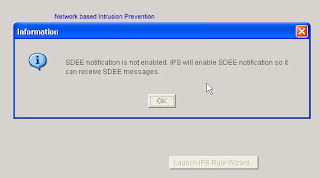It's Tuesday, June 24, and here are your CCENT, CCNA, and CCNP practice questions for today!
Be sure to read the other blog posts from yesterday and today for the latest information on the new CCNA Security, Wireless, and Voice certifications.
Also, I'll add CCNA questions for all three of those certifications to the blog and newsletter on August 1!
CCENT Certification:
In what order do these DHCP packet types occur in a typical IP address acquisition?
A. Ack
B. Offer
C. Discover
D. Request
Answer: C, B, D, A.
In a nutshell, the DHCP process is...
1. Host sends DHCP Discover message (broadcast)
2. DHCP Server(s) send Offer (unicast to requesting host)
3. Host sends DHCP Request (broadcast)
4. DHCP Server whose Offer is accepted sends Ack (unicast to requesting host)
CCNA:
Which of the following are considered "classless" protocols?
A. RIP v 1
B. RIP v 2
C. EIGRP
D. OSPF
E. Static routing
Answer: B, C, D. RIPv2, EIGRP, and OSPF are "classless" protocols; RIPv1 is "classful". Static routing is not a protocol.
CCNP / BSCI:
By default, iBGP routers cannot propagate routes to iBGP neighbors that were originally learned from another iBGP router. Which of the following are methods of circumventing this rule?
A. setting an alternate next-hop IP address
B. changing the weight attribute
C. configuring route reflectors
D. turning synchronization off
E. changing the local preference attribute
F. configuring confederations
Answers: C, F. Route reflectors and confederations help us work around this particular BGP rule.
CCNP / BCMSN:
Which of the following is NOT true of a destination SPAN port?
A. It can be any Ethernet port type - regular, Fast, or Gigabit.
B. It doesn't participate in VTP, STP, or CDP.
C. It doesn't participate in PAgP, LACP, or DTP.
D. It can be a source SPAN port as well.
E. It can be part of an Etherchannel.
Answers: D, E. A destination SPAN port cannot be a source SPAN port, and a destination port cannot be part of an Etherchannel.
CCNP Certification / ISCW Exam:
You've just clicked the Launch IPS Rule Wizard button in SDM. What protocol are you likely to be prompted to enable?
Answer: If SDEE is not already running on that router, SDM will prompt you to do so as shown here...

... and you cannot proceed with the configuration until you do so.
CCNP Certification / ONT Exam:
Which of the following are fixed-length delays?
A. Propagation
B. Serialization
C. Queueing
D. Processing
Answer: A, B. Serialization and propagation delays are fixed in length. Queueing and processing delays are variable in length.
Thanks for visiting, and I'll have more questions for you here later today!
To your success,
Chris Bryant
CCIE #12933
http://www.thebryantadvantage.com/
Be sure to read the other blog posts from yesterday and today for the latest information on the new CCNA Security, Wireless, and Voice certifications.
Also, I'll add CCNA questions for all three of those certifications to the blog and newsletter on August 1!
CCENT Certification:
In what order do these DHCP packet types occur in a typical IP address acquisition?
A. Ack
B. Offer
C. Discover
D. Request
Answer: C, B, D, A.
In a nutshell, the DHCP process is...
1. Host sends DHCP Discover message (broadcast)
2. DHCP Server(s) send Offer (unicast to requesting host)
3. Host sends DHCP Request (broadcast)
4. DHCP Server whose Offer is accepted sends Ack (unicast to requesting host)
CCNA:
Which of the following are considered "classless" protocols?
A. RIP v 1
B. RIP v 2
C. EIGRP
D. OSPF
E. Static routing
Answer: B, C, D. RIPv2, EIGRP, and OSPF are "classless" protocols; RIPv1 is "classful". Static routing is not a protocol.
CCNP / BSCI:
By default, iBGP routers cannot propagate routes to iBGP neighbors that were originally learned from another iBGP router. Which of the following are methods of circumventing this rule?
A. setting an alternate next-hop IP address
B. changing the weight attribute
C. configuring route reflectors
D. turning synchronization off
E. changing the local preference attribute
F. configuring confederations
Answers: C, F. Route reflectors and confederations help us work around this particular BGP rule.
CCNP / BCMSN:
Which of the following is NOT true of a destination SPAN port?
A. It can be any Ethernet port type - regular, Fast, or Gigabit.
B. It doesn't participate in VTP, STP, or CDP.
C. It doesn't participate in PAgP, LACP, or DTP.
D. It can be a source SPAN port as well.
E. It can be part of an Etherchannel.
Answers: D, E. A destination SPAN port cannot be a source SPAN port, and a destination port cannot be part of an Etherchannel.
CCNP Certification / ISCW Exam:
You've just clicked the Launch IPS Rule Wizard button in SDM. What protocol are you likely to be prompted to enable?
Answer: If SDEE is not already running on that router, SDM will prompt you to do so as shown here...

... and you cannot proceed with the configuration until you do so.
CCNP Certification / ONT Exam:
Which of the following are fixed-length delays?
A. Propagation
B. Serialization
C. Queueing
D. Processing
Answer: A, B. Serialization and propagation delays are fixed in length. Queueing and processing delays are variable in length.
Thanks for visiting, and I'll have more questions for you here later today!
To your success,
Chris Bryant
CCIE #12933
http://www.thebryantadvantage.com/
Comments